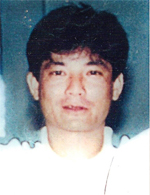The Shan State Army (SSA)has pledged to lend a helping hand in the resolution of 4-year long issue of drug trafficking and protection racketeering in the Golden Triangle that culminated in the killing of 13 Chinese there last week. One of its senior officers told SHAN its offer to help since 2006 remains open. It came in response to requests from several well wishers.
Requesting anonymity, the officer said the SSA had offered its cooperation to all countries concerned in the resolution of the drug problem.
 However, when it offered to turn over 1.1 million yaba (methamphetamine) pills it had seized on the Mekong on 6 February 2007, there was no country to accept them. “We couldn’t keep them either,” he explained. “So we invited the media to the SSA base (across Chiangrai province) on 6 June 2007 to witness the burning of all the drugs and report to the readers.”
However, when it offered to turn over 1.1 million yaba (methamphetamine) pills it had seized on the Mekong on 6 February 2007, there was no country to accept them. “We couldn’t keep them either,” he explained. “So we invited the media to the SSA base (across Chiangrai province) on 6 June 2007 to witness the burning of all the drugs and report to the readers.”
The result of the drug bonfire was the withdrawal of the SSA troops from Burma’s side of the Golden Triangle, which was taken over by the hitherto unknown Naw Kham, who has since became a fixture in the area.
 His predecessors: the Mong Tai Army (MTA) of the late Khun Sa, the United Wa State Army (UWSA) and the SSA South all failed in their efforts to set themselves up permanently in the Golden Triangle. All of them were pushed back to where they came from by the Burma Army. But undermanned and underarmed, Naw Kham was able to take control of areas surrounding the Triangle with remarkable ease. “The village headmen and local officials on the banks of Laos, Burma and Thailand seem to support him,” said a businessman in Shan State East. “The Burma Army also seems to be virtually powerless against him.”
His predecessors: the Mong Tai Army (MTA) of the late Khun Sa, the United Wa State Army (UWSA) and the SSA South all failed in their efforts to set themselves up permanently in the Golden Triangle. All of them were pushed back to where they came from by the Burma Army. But undermanned and underarmed, Naw Kham was able to take control of areas surrounding the Triangle with remarkable ease. “The village headmen and local officials on the banks of Laos, Burma and Thailand seem to support him,” said a businessman in Shan State East. “The Burma Army also seems to be virtually powerless against him.”
Naw Kham’s shooting spree began in February 2008 with a Chinese police speed boat. Since them all ships that ply the waters of the Mekong from north to south and back have been at the mercy of Naw Kham, a former Burma Army run People’s Militia Force chief in Tachilek.
In the face of this formidable opposition, the SSA officer promises, “With adequate support, moral if not material, from those concerned, we will be able to help maintain peace and drug control along the river.”


